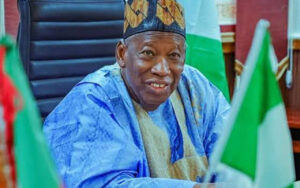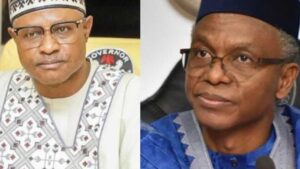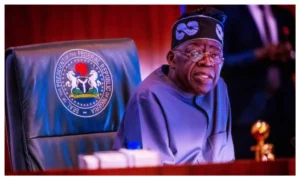
In today’s Nigeria, image seems to matter more than substance. Across many states, governors are spending billions of naira on media teams—not necessarily to inform the people, but to paint glowing pictures of their performance, whether real or imagined.
This editorial is not a witch hunt. We know media is important in governance. Citizens deserve updates on what their leaders are doing. But when media budgets balloon beyond what is spent on hospitals, schools, and infrastructure, it becomes clear that something is wrong.
Take a look around. In some states, you’ll find governors with 50 to 100 media aides—Special Assistants, Senior Special Assistants, Executive Special Assistants, and every other kind of “Assistant” you can think of. Their job? Not to challenge or question, but to push daily propaganda, trend hashtags, attack critics online, and make the governor look like a saviour—even when the people are suffering.
Recently, Sahara Reporters revealed that a governor in the North-West allegedly approved over ₦5 billion for “media and PR” in just one year. Another governor in the South-East reportedly budgeted over ₦3 billion for the same. Meanwhile, in those same states, pensioners haven’t been paid for months, roads are death traps, and hospitals lack basic drugs.
What are we really funding—public communication or public deception?
Let’s be honest: many of these media teams are not about transparency. They are about image laundering. The goal is not to inform the public but to shape narratives, suppress criticism, and manufacture praise. This is dangerous for democracy.
When governors surround themselves with sycophants, they lose touch with reality. Media aides become attack dogs on social media, fighting journalists, bullying citizens, and turning every complaint into a personal insult against their boss. Is this governance?
We’ve also seen how state-owned media houses have become echo chambers—reporting only what the governor wants, ignoring real issues. Independent journalists are sometimes barred from covering government activities unless they “cooperate.” This is not media. This is dictatorship in disguise.
Of course, we must ask: who audits these media budgets? Who tracks what is spent on PR contracts, advert placements, documentaries, social media campaigns, and “reputation management”? In many cases, there is no transparency. These are funds that could fix schools, pay salaries, or improve water supply.
What is even more worrying is that some of these governors are underperforming but still trending daily. Their media teams flood social media with edited photos, exaggerated captions, and paid influencers pushing hollow achievements. They hold weekly press briefings, town halls, and media dinners—yet the streets tell a different story.
It’s time we called this what it is: wasteful spending, cleverly masked as governance.
The Nigerian people deserve better. Media in governance should be used to educate, engage, and promote accountability—not to deceive. Governors must reduce the size of their media entourages and redirect funds to actual development. Let citizens speak for themselves. If you’re doing well, they will say so.
In a time when states are battling debt, unpaid wages, and economic hardship, there is no moral justification for bloated PR teams and vanity campaigns. Leadership should be seen in action, not just on posters and jingles.
Governors must remember: history does not remember the best image-makers. It remembers the ones who delivered.




